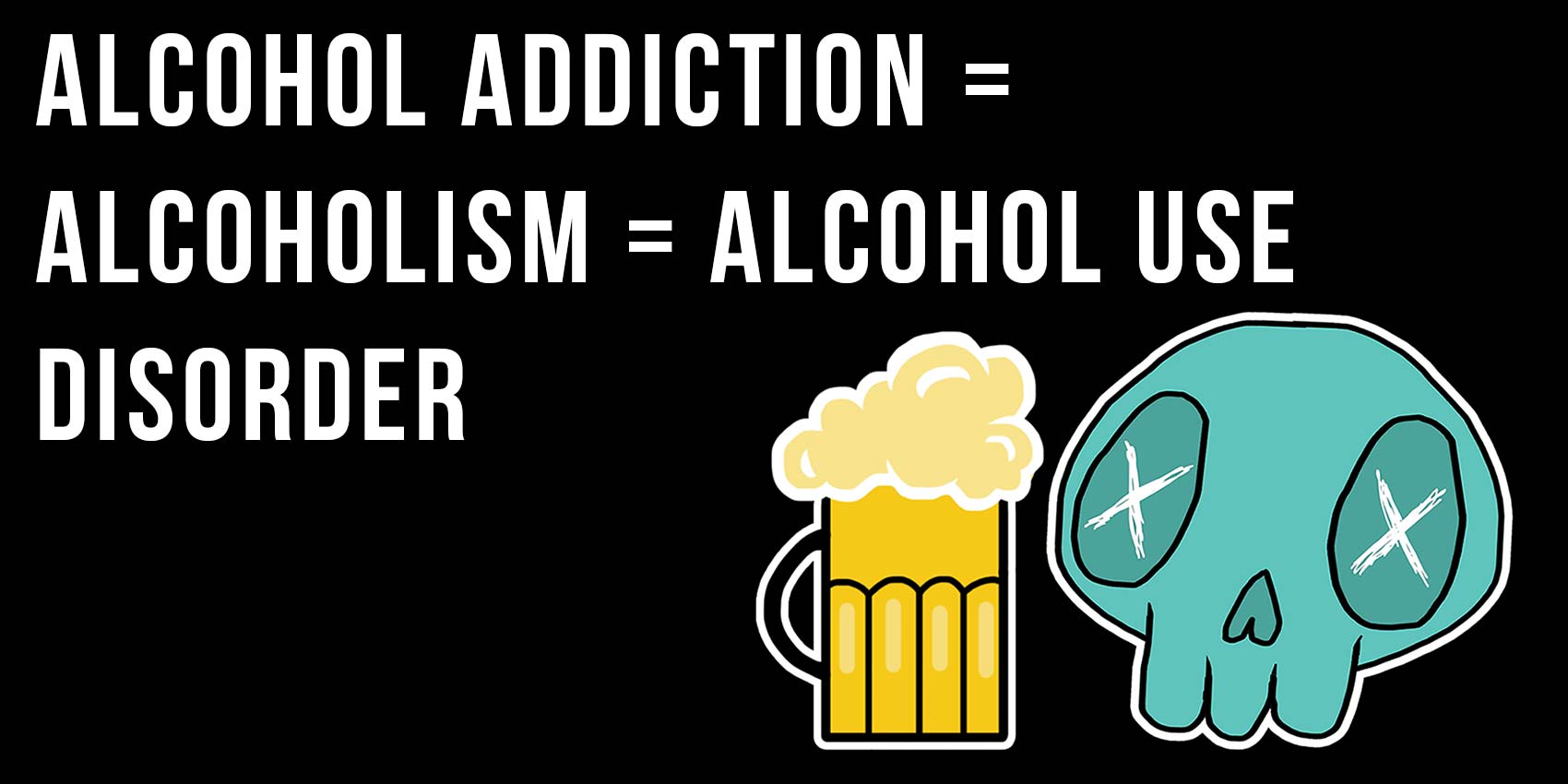15 Oct Alcohol addiction = alcoholism = alcohol use disorder


DID YOU KNOW?: The term “alcohol use disorder” is now the official term for what people have previously referred to as “alcoholism” or “alcohol abuse.”
Today, an estimated 15 million Americans suffer from alcohol use disorder—addiction to alcohol.
What exactly is addiction? Check out the definition from www.dictionary.com as it is a very accurate representation of what a person risks when using alcohol.

Addiction: –noun
1. the state of being enslaved [ this means to shackle, control or dominate] to a habit or practice or to something that is psychologically or physically habit-forming, as narcotics (substances with a numbing influence), to such an extent that its cessation (stop or end to) causes severe trauma.
Addiction to alcohol therefore means that a person is controlled by it and that it has an incredibly negative impact on his or her life. People who have alcohol use disorder (previously termed alcoholics) can not control their drinking. They do not know how to stop drinking. They think about alcohol much of the time and will continue to drink even though their work, relationships and health might suffer.
Alcohol use disorder is believed to have a strong genetic component. For example, “The Collaborative Study on the Genetics of Alcoholism found that children of alcoholic parents, especially sons of alcoholic fathers, are four to nine times more likely to have problems with alcohol than children of non-alcoholic parents.”
(Source: https://www.aacap.org/AACAP/Families_and_Youth/Facts_for_Families/FFF-Guide/Children-Of-Alcoholics-017.aspx).
Children of alcoholics raised by non-alcoholics (think, adopted) are still at a higher risk for developing alcoholism.

DID YOU KNOW? Children raised in a home with an alcoholic present are at greater risk for having emotional problems than children raised in homes where no alcoholics are present.
(Source: https://www.aacap.org/AACAP/Families_and_Youth/Facts_for_Families/FFF-Guide/Children-Of-Alcoholics-017.aspx)
Determining exactly how much of alcoholism is genetic is difficult as not only may your parents’ drinking affect you on a genetic level, but your parents are also modeling drinking behavior. Much of what teens learn about how to handle drinking does come through their parents. So just what are your parents modeling? Are they responsible? Do they drink and drive? When it comes to alcohol, taking a good hard look at your parents’ behaviors and the messages they send can be enlightening. Just because your parents drink does not mean that you will, and just because they don’t doesn’t mean that you won’t. That choice is up to you. (Though it is important to keep in mind that children of alcoholics are more sensitive to alcohol in general.)
In addition, the exact definition of a person with alcohol use disorder is sometimes hard to define as many people have an unhealthy relationship with alcohol without the craving and physical dependence (see next sub-post). For instance, the BINGE DRINKER is not considered alcohol dependent. This person can go for long periods of time without drinking but when he does drink, he drinks to a lot in a short amount of time. Binge drinking is defined by a pattern drinking where the person consistently drinks to a BAC of .08 or above. That means, once a binge drinker starts, he keeps going, until he is fully intoxicated (drunk). Although this person may not be dependent on alcohol, his drinking is problematic and therefore in need of change.
Binge drinking it the most common and deadly pattern of alcohol abuse.
(Source: https://www.cdc.gov/alcohol/fact-sheets/binge-drinking.htm)

TIP! The National Institute of Health notes that all people, including those with a genetic disposition, can greatly reduce their chances of becoming an alcoholic by abstaining from (meaning not engaging in) UNDERAGE drinking. (Probably because ninety-five percent of the 14 million people who are alcohol dependent began drinking before the legal age of 21.
(Source: https://www.madd.org/statistics/)
Remember: The younger you start to drink, the HIGHER your risk of becoming an alcoholic!!!! And that has implications for your brain….




Post Question:
Does your family talk about alcohol use? If you had questions about alcohol, who would you feel safe asking?
Answer the post question here
What's being said